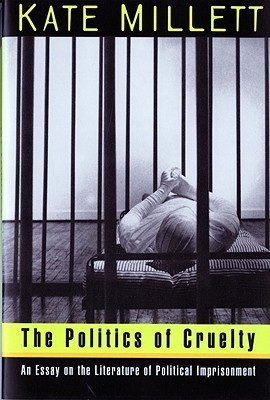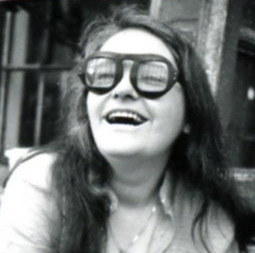
From one of the most influential figures of the last twenty years―the author of Sexual Politics ―comes this brilliant work in which Kate Millet sets out a new theory of politics for our time, a harrowing view of the modern state based on the practice of torture as a method of rule, as conscious policy. It is, in the words of the noted Iraqi dissident Kanan Makiya, "a passionate, heroic effort to fathom the nature of a phenomenon that all too often drains us emotionally and incapacitates us intellectually." Millett analyzes the individual's monumental fear of the state through the rich literature of its expression―a mixture of literary text (Solzhenitsyn's The Gulag Archipelago, Mathabane's Kaffir Boy, Bharadwaj's film Closet Land ), the reports of witnesses, legal theory, and historical account. The literary version of their experience is the most arresting; it prevails and persuades with the greatest effect: the reality of the victim, the social and psychological climate of life under dictatorship, the moment of capture when one is "disappeared," that pivotal electronic second after which nothing is ever the same.
Author

Katherine Murray "Kate" Millett was an American feminist writer, educator, artist, and activist. She attended Oxford University and was the first American woman to be awarded a postgraduate degree with first-class honors by St. Hilda's. She has been described as "a seminal influence on second-wave feminism", and is best known for her 1970 book Sexual Politics," which was her doctoral dissertation at Columbia University. Journalist Liza Featherstone attributes previously unimaginable "legal abortion, greater professional equality between the sexes and a sexual freedom" being made possible partially due to Millett's efforts. The feminist, human rights, peace, civil rights, and anti-psychiatry movements have been some of Millett's key causes. Her books were motivated by her activism, such as woman's rights and mental health reform, and several were autobiographical memoirs that explored her sexuality, mental health, and relationships. Mother Millett and The Loony Bin Trip, for instance, dealt with family issues and the times when she was involuntarily committed. Besides appearing in a number of documentaries, she produced Three Lives and wrote Not a Love Story: A Film about Pornography. In the 1960s and 1970s, Millett taught at Waseda University, Bryn Mawr College, Barnard College, and University of California, Berkeley. Millett was raised in Minnesota and has spent most of her adult life in Manhattan and the Woman's Art Colony, which became the Millett Center for the Arts in 2012, that she established in Poughkeepsie, New York. Self-identified as bisexual, Millett was married to sculptor Fumio Yoshimura from 1965 to 1985 and had relationships with women, one of whom was the inspiration for her book Sita. She has continued to work as an activist, writer, and artist. Some of her later written works are The Politics of Cruelty (1994), about state-sanctioned torture in many countries, and a book about the relationship with her mother in Mother Millett (2001). Between 2011 and 2013 she has won the Lambda Pioneer Award for Literature, received Yoko Ono's Courage Award for the Arts, and was inducted into the National Women's Hall of Fame.